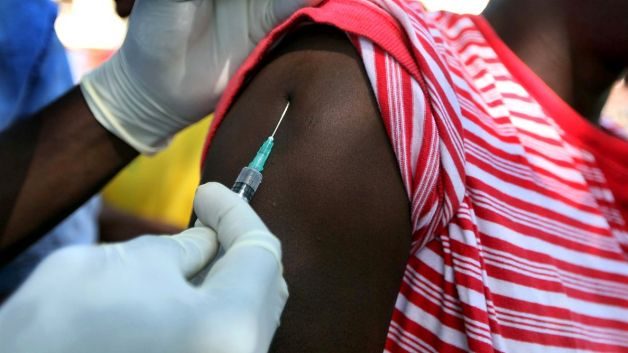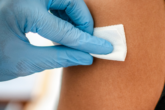
Unarguably, vaccination is one of the greatest success stories of the twentieth century, surpassing the discovery of penicillin and the landing on the moon. Globally, vaccines save at least 2 – 3 million lives a year.
How Do Vaccines Work?
Your immune system is your body’s defense against infection. It uses three specialized blood cells – macrophages, B-Lymphocytes, and T-Lymphocytes – to fight infection.
Vaccines use weakened or inactivated germs or parts of a germ to teach your immune system to build antibodies and other defenses against the virus or bacteria. You don’t have to suffer the effects of an actual infection to develop immunity against it.
Are COVID-19 Vaccines Different From Other Vaccines?
Four kinds of COVID-19 vaccines are available:
mRNA Vaccine – use messenger RNA (mRNA), a genetic material, to carry instructions to your body to make a small part of the coronavirus spike protein. Your cells produce the protein and then destroy the genetic material with the instructions. Your immune system recognizes the protein as an enemy and creates B- and T-Lymphocytes that fight Coronavirus.
Example: Pfizer and Moderna vaccines
Viral Vector Vaccine – uses a weakened form of another virus (like the common cold virus) to carry the genetic material of Coronavirus. The genetic material gives your body instructions to make the spike protein from the Coronavirus. Your body makes the protein, which your immune system recognizes as foreign and makes B- and T-Lymphocytes that fight COVID-19.
Example: AstraZeneca Oxford vaccine

Protein Subunit Vaccine – is a traditional vaccine that contains small bits of the Coronavirus, which are harmless. Your immune system still identifies them as foreign material. It creates B- and T-Lymphocytes that fight the Coronavirus if you get infected.
Example: Norovax vaccine, in the last stage of clinical trials
Inactivated Vaccine – is a traditional vaccine that uses an inactivated form of the Coronavirus. It stimulates your immune system to recognize and fight the infection.
Example: China’s Sinovac and Sinopharm vaccines
Is the COVID-19 Vaccine Safe?
Clinical trials done on human volunteers show that COVID-19 vaccines are safe and effective. They have similar side effects to other vaccines. Common symptoms after getting the vaccine include soreness at the site of injection and sometimes fever. People with a history of severe allergies should not get COVID-19 vaccines.
COVID-19 vaccines don’t contain live virus, and so you CANNOT get COVID-19 from a vaccine. Contrary to misinformation on social media, mRNA COVID-19 vaccines cannot change or affect your DNA. They work with your immune system to safely build immunity that protects you from the disease.
Can I Get COVID-19 After Getting The Vaccine?
After vaccination, it takes a few weeks for your body to build immunity to protect you from infection. It’s, therefore, possible to get infected with COVID-19 before or soon after vaccination. Continue to practice COVID-19 precautions after receiving the vaccine –mask, social distancing, hand washing, and avoiding crowds.
The COVID-19 vaccines available globally effectively prevent infection in 70% – 95% of those vaccinated. No vaccine is 100% effective in preventing disease, so maintain precautions until there’s minimal transmission of the virus in your community.

Why Should I Get The COVID-19 Vaccine?
There’s no way to predict how COVID-19 will affect you even if you have no pre-existing health conditions. About 80% of people will get a mild illness, while 2 in 10 people will develop a severe illness or die from COVID-19. You may be one of those who develop a life-threatening case. If you get the disease, you also put your friends and family at risk of becoming very sick.
According to the CDC, there are three great reasons to get the COVID-19 vaccine:
- It will help prevent you from getting COVID-19.
- It’s a safer way to build immunity than getting the infection.
- It’s the best way to bring the pandemic under control when combined with COVID-19 precautions such as masking, social distancing, and avoiding crowds.
We must use all the weapons available to fight this pandemic. Thankfully, we now have vaccines. Used together with WHO and CDC guidelines on how to protect yourself and others from COVID-19, we can win the battle. Getting the vaccine is one of the smartest things you can do this year. The scientists are doing their part. Let’s do ours.
Toju Chike-Obi, MD


Abiodun Cheke
This write-up is really one of the most expletive and informative narrative I have come across on the Coronavirus Vaccine. Thanks for this. I will surely pass on this. 👍👍👍.
Yetunde O.Aiyela
Thanks so much for the enlightement, it’s refreshing to be in the know despite so many stories about the negative stories and effects of the vaccine.
Gbolahan Odutayo
Well Written, however I have a question and goes thus; What is the effect of the various vaccines on someone who has had covid and most likely now has some level of antibodies?